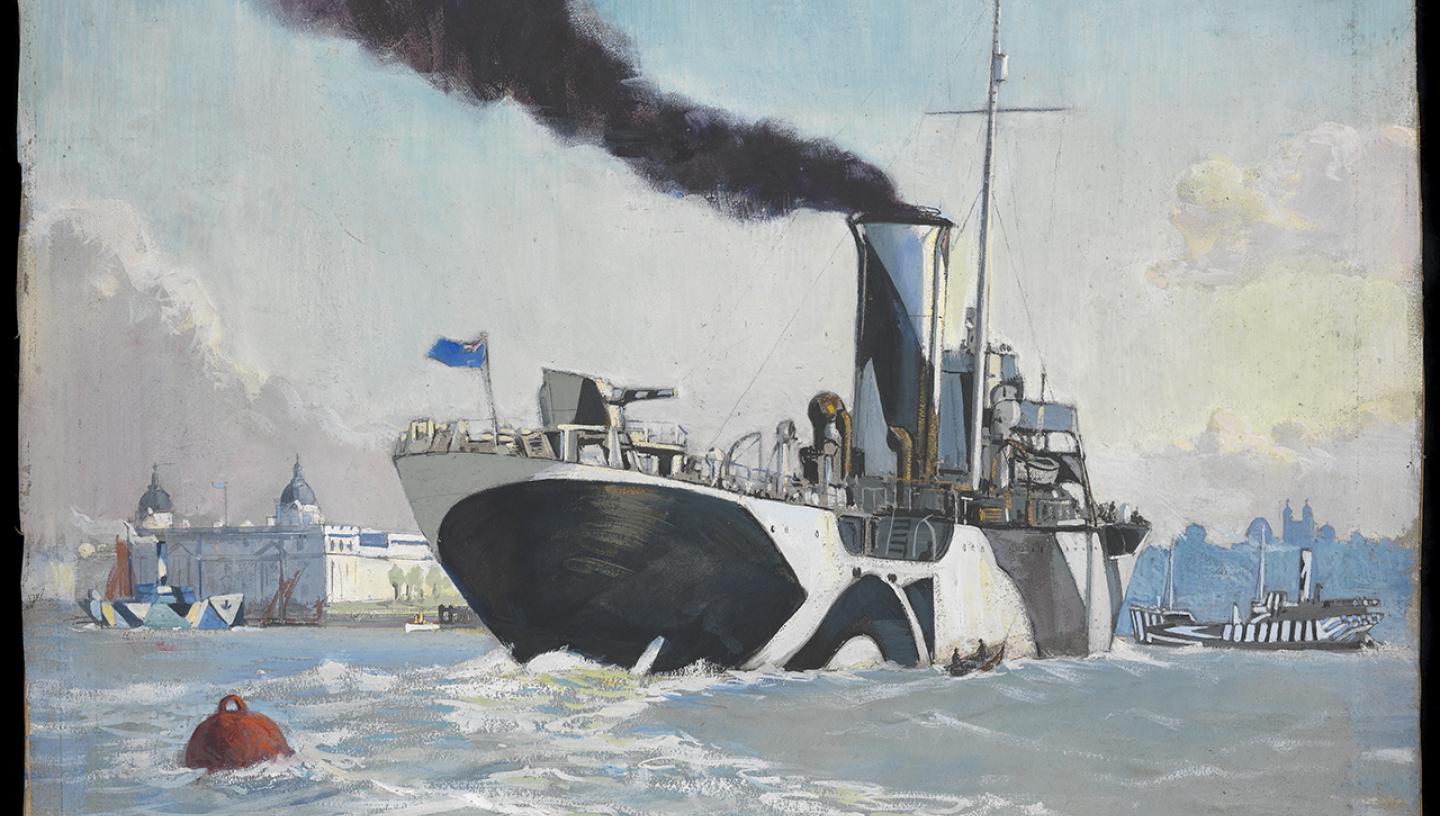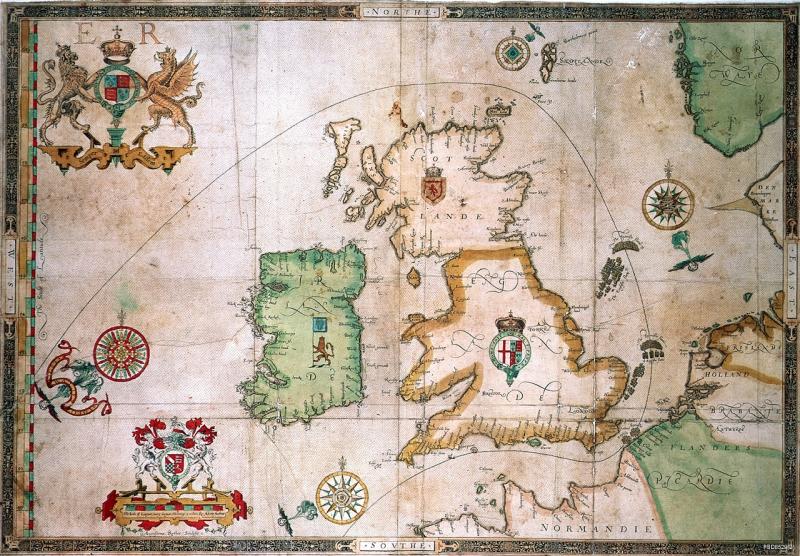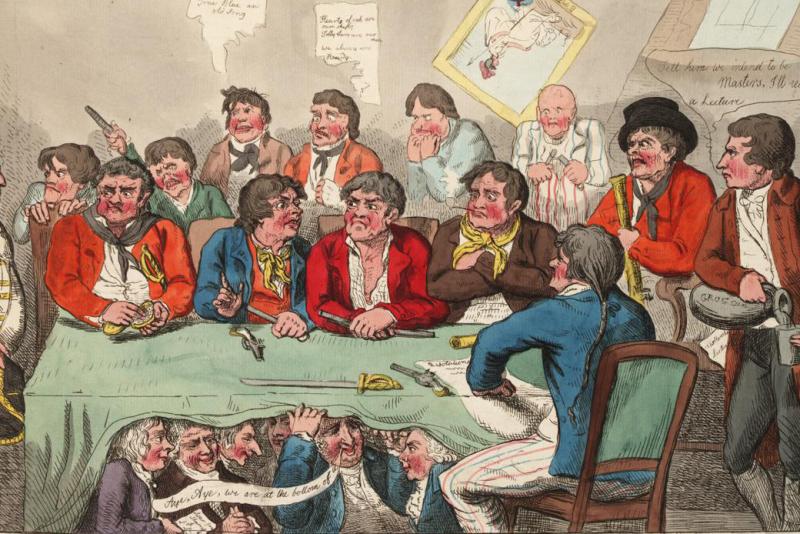
12-13 September 2025, Royal Museums Greenwich
‘Britain, Conflict and the Sea’ seeks to explore the ways in which modern Britain has been shaped by ideas and practices of maritime war. Understandings of ‘Britishness’ have been bound up with conflict and seafaring for centuries. The sea has served as a barrier, marking the mental borderlines of an ‘island people’ and distinguishing them from European ‘others’. It has also facilitated the development and projection of British imperial power and capital on a global scale. This conference aims to explore the production, consumption, evolution and impact of these ideas and developments between the Napoleonic Wars and today.
Overarching narratives of the sea in modern British history depict this story in terms of the ‘rise and fall’ of British identification with the sea. The story runs as follows: sea power saved Britain from Napoleonic invasion in 1803-04, and the intense anti-French propaganda and opposition to continental dictatorship developed a new form of ‘national’ awareness during successive wars against France. The imagery of ‘jack tar’ and Lord Nelson reflected the embodiment of the masculine naval ideal. By the late nineteenth century, the abolition of the Corn Laws and the growth of global trade ushered in the political and economic basis for widespread popular awareness of Britain as a metaphorical ‘island’, ringed by the warships of the Royal Navy. The popular navalism of the pre-1914 period, and the conditions that supported it, were fundamentally undone by the First World War. The conflict destabilised the Navy’s prominent place within popular culture, and ushered in newfound forms of common identity and aspiration. The aeroplane became the new symbol of technological modernity, and after 1945 the sea receded to the margins of the British consciousness – where it remains to this day.
This interdisciplinary conference, developed in collaboration with the National Maritime Museum (part of Royal Museums Greenwich) and with generous support from the British Academy, seeks to reappraise this account, to widen its parameters, and to ask new questions about modern Britain, conflict, and the sea. A key focus of the event will be upon the interaction between stories about ‘Britain, Conflict and the Sea’, and the political, economic, and military contexts and practices that those narratives existed within. As such, we welcome papers that address the following questions or themes:
- How have ideas about conflict and the sea shaped modern British history?
- What are the principal narratives about maritime conflict within modern British history? How have these narratives been mobilised by particular groups and to what end?
- How are emerging or previously under-represented narratives that link questions of identity, conflict, and the sea enriching our understanding of modern British history?
- What role does conflict play in establishing, changing, or revealing forms of national identity?
- How can transnational and imperial frames shed new light on Anglo-centric accounts of maritime identity?
- To what extent does the First World War represent a rupture in Britain’s relationship with the sea?
We welcome proposals from independent or institutionally based researchers in a range of disciplines, for papers presenting original research that speak to these questions or to the themes of the conference as a whole, or wider historiographical reflections related to key ideas, trends or works in this area.
Submission
- Please send submissions comprising a 250-word abstract and a biography of up to 200-words to research@rmg.co.uk.
- Proposals for complete panels of either 3 or 4 papers are also welcome. Papers should be of 15-20 minutes duration.
- The deadline for submissions is 12.00 (midday) GMT/UTC on Friday 24 January 2025.
- We will notify applicants of outcomes in February 2025.
- Funds are available to support emerging or early career researchers, or others lacking personal or institutional support; please indicate on your submission if you would like to be considered for this funding and what amount you would require in order to attend.
- We welcome applications from those in the university and museum and heritage sectors, as well as students and all those with research interests connected to maritime history and histories of national identity or conflict.
- If you have any questions about the themes of the event or the content of paper/panel proposals please contact the lead academic convenor Dr David Morgan-Owen at david.morgan-owen@kcl.ac.uk.
Our partners



